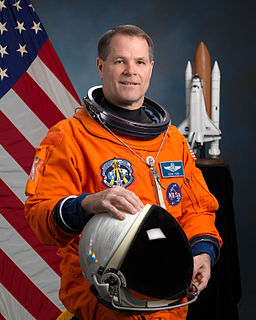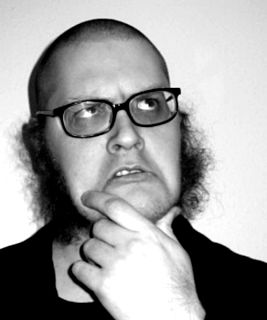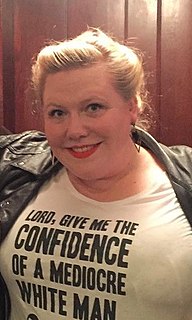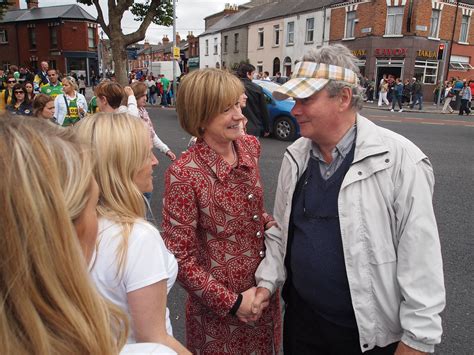A Quote by Kenneth Clark
Our universe cannot even be stated symbolically. And this touches us all more directly than one might suppose. For example, artists, who have been very little influenced by social systems, have always responded instinctively to latent assumptions about the shape of the universe. The incomprehensibility of our new cosmos seems to me, ultimately, to be the reason for the chaos of modern art.
Related Quotes
We have simply arrived too late in the history of the universe to see this primordial simplicity easily... But although the symmetries are hidden from us, we can sense that they are latent in nature, governing everything about us. That's the most exciting idea I know: that nature is much simpler than it looks. Nothing makes me more hopeful that our generation of human beings may actually hold the key to the universe in our hands - that perhaps in our lifetimes we may be able to tell why all of what we see in this immense universe of galaxies and particles is logically inevitable.
How is it that hardly any major religion has looked at science and concluded, “This is better than we thought! The Universe is much bigger than our prophets said, grander, more subtle, more elegant?” Instead they say, “No, no, no! My god is a little god, and I want him to stay that way.” A religion, old or new, that stressed the magnificence of the Universe as revealed by modern science might be able to draw forth reserves of reverence and awe hardly tapped by the conventional faiths.
We live inside our universe and cannot get a bird's-eye view of it from outside. And we cannot even see all of our universe. Distant parts of it are expanding away from us so fast that they are invisible; they go faster than the speed of light. Having bigger telescopes to see fainter stars will not help us here: invisible is truly invisible.
The story of the universe finally comes to an end. For the first time in its life, the universe will be permanent and unchanging. Entropy finally stops increasing because the cosmos cannot get any more disordered. Nothing happens, and it keeps not happening, forever. It's what's known as the heat-death of the universe. An era when the cosmos will remain vast and cold and desolate for the rest of time the arrow of time has simply ceased to exist. It's an inescapable fact of the universe written into the fundamental laws of physics, the entire cosmos will die.
After all, is it not the way we humans shape the universe, shape time itself? Do we not take the raw stuff of chaos and impose a beginning, middle, and end on it, like the simplest and most profound of folktales, to reflect the shapes of our own tiny lives? And if the physicists are right, that the physical world changes as it is observed, and we are its only known observers, then might we not be bending the entire chaotic universe, the eternal, ever-active Now, to fit that familiar form?
We are living in an inspiring and unimaginably large universe. Contemplating the immensity of our cosmos can make you feel very small and insignificant. But think about it. You have 37.2 trillion cells in your body. There is vastness outside you and vastness inside you. You are connected to this mystery, you are a microcosm of the universe, and every aspect of your life benefits from the universe's provision.
The storyteller is deep inside everyone of us. The story-maker is always with us. Let us suppose our world is attacked by war, by the horrors that we all of us easily imagine. Let us suppose floods wash through our cities, the seas rise . . . but the storyteller will be there, for it is our imaginations which shape us, keep us, create us - for good and for ill. It is our stories that will recreate us, when we are torn, hurt, even destroyed. It is the storyteller, the dream-maker, the myth-maker, that is our phoenix, that represents us at our best, and at our most creative.
I've always been an escapist, I guess, and I spend so much time on the internet absorbing ideas and processing the horrors of the world that when I'm actually going to read for pleasure, it's always something ridiculous about a dragon. I'm so saturated with the injustice and torment of the real world that it's really hard for me to get myself to read anything that's even set in our universe, because I'm exhausted by our universe.
He is everywhere, the pure and formless One, the Almighty and the All-merciful. "Thou art our father, Thou art our mother, Thou art our beloved friend, Thou art the source of all strength; give us strength. Thou art He that beareth the burdens of the universe; help me bear the little burden of this life." Thus sang the Rishis of the Vedas. And how to worship Him? Through love. "He is to be worshipped as the one beloved, dearer than everything in this and the next life."
There is order in the universe, even though it looks like chaos. We separate the world into categories: this is good and this is bad. But life is set up to trick us. It's a series of illusions we invest in. And ultimately those investments don't serve our understanding, because physicality is always going to let you down, because physicality doesn't last.



































